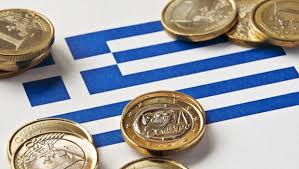Greece’s Great Depression: History Repeats Itself
The vulnerability of the fiat system has come to light once more in the economic crisis facing Greece and quite possibly the rest of Europe. The trouble began in 2001 when the introduction of the Euro reduced trade costs, increased trade volume and labor costs throughout Europe. Greece lost their competitive edge and was unable to afford to produce the amount of products they consumed, thus both their trade and budget deficits rose sharply.

With the implosion of the Wall Street market in 2008 came another bombshell. With global markets still reeling, Greece, already having lost significant revenue from its tourism and shipping sectors, became the center of global attention by admitting they had been falsifying economic reports and understating their rising deficit figures for years.
This announcement initiated a breakneck spiral of confidence in the soundness of Greek finances and caused them to be turned away from borrowing in the international financial markets. Before long, unable to pay their debts and hampered further by renegade citizen’s intent on escaping tax obligations, Greece was facing imminent bankruptcy.

Their first attempt at correction was to improve their competitiveness by decreasing wages. This failed endeavor caused a marked reduction in consumer spending, more than doubled unemployment and led to more government losses in tax revenue, which in turn led to a severe recession.
A series of reluctant international bailouts would ensue. The rescues came with strict conditions. Lenders required Greece to address problems of premature retirement, give concessions to business owners, streamline the government with deep budget cuts, impose steep tax increases and crack down on tax evasion.

Avid assurances were, of course, given that these issues would be addressed promptly. Perhaps noncompliance was foreseeable based on earlier deceptions; in any case, very little follow through was performed and so the nation of Greece continued to mire in the economic muck. Failure to make its first bailout loan payment made Greece the very first developed country to default on a sovereign loan. It could also mark the beginning of the end of the European Union as the world knows it.

Greece's economy has been depleted to the same degree the Great Depression reached in America. Its government has collapsed over and over and Greek banks, in danger of frantic withdrawals, were closed to prevent further damage to the economy. The rest of Europe can only stand by, wondering if the stagnant branches of bankruptcy will spread to them. Some feel the consequences of the economic crisis in Greece will not be significant enough to reach them.
While others determine this is the final nail in the coffin that may see Greece forced out of the Euro system to save the rest of Europe, some people argue that the Euro system is the trigger from which all of their problems exploded and that a return to their own currency would restore control over monetary policy and allow them to navigate the treacherous waters of restructuring on a national level, rather than through the entire sea of the Eurozone. Others intimate Greece's financial estrangement could have severe global consequences.
Guessing at what the future economic weather might be is a dangerous game, therefore, investing one's savings as a tangible resource like gold becomes much more attractive. The value of gold is largely unaffected by the whims of political winds, in fact, in times of crisis, history has shown its value rises.







